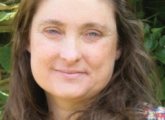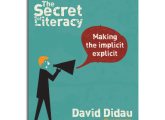3 movies that could help students engage more deeply with English literature
3 movies that could help students engage more deeply with English literature
Great works of literature have inspired many great films; watching them, as well as being enjoyable, can shed new light on a character, highlight themes in a novel we hadn’t previously considered or introduce us to an author we didn’t think we’d like.
In the classroom, because of its universal appeal, film is a useful tool for teachers seeking new ways to being literature to life and motivate students who find a text challenging. To facilitate this, the education charity FILMCLUB has compiled a new, GCSE English Enrichment resource, encouraging members to think critically about film adaptations of seven widely taught GCSE novels (three of which are highlighted below). Designed to promote an array of post screening discussions – ranging from the suitability of actors to portray the novel’s characters, to comparisons between the book and film, to the interpretation of an author’s work by a director – the resource contains discussion questions, teachers’ notes and suggested activities for each recommended title. Students are also encouraged to review the films for the FILMCLUB website. The free guide is available to download at tinyurl.com/crdtog4, and the relevant movies – along with thousands of other great titles – can be ordered free by FILMCLUB members with delivery straight to schools by partner LOVEFILM. “We’ve mainly used our club to develop students’ critical and literacy skills,” says a teacher in London’s Tower Hamlets. “One girl has progressed in English from F to B partly as a result of her participation.”
To kill a mockingbird (1962, PG)
Adaptation of Harper Lee’s novel about an idealistic white lawyer in 1930s Alabama who takes on the case of a black man accused of an awful crime.
Discussion points:
1. Why do you think that the film was shot in black and white instead of colour? 2. How does the soundtrack contribute to the drama in the scene where Jem and Scout are attacked on their way home from the pageant? 3. During the scene where Atticus is keeping a vigil at the jailhouse on the night before the trial, how are tension, drama and mood created by the lighting and camera angles?
Review starter
To Kill a Mockingbird is a cinema classic with a powerful message about racism in depression era America…
Of mice and men (1939, PG)
Adapted from John Steinbeck’s novel, this is a powerful drama about friendship and poverty in 1930s rural America.
Discussion points:
1. How does the film reflect the reality of life during The Great Depression?
2. Why were the scenes with Curley and his wife Mae at home added to the film?
3.In your opinion how successful was the bunkhouse scene when Candy’s dog was shot?
Review starter
This is a film in part about achieving personal dreams, which centres around two unlikely friends…
Great Expectations
(1946, PG)
Adapted from the classic novel by Charles Dickens, David Lean offers a gripping depiction of this familiar tale of class and ambition.
Discussion points:
1.The character of Pip is older than in the novel – does this affect your viewing of the film?
2. In your opinion, how accurately is Victorian England reflected in this film? 3.How is Pip’s development from a blacksmith’s apprentice to a gentleman shown on screen?
Review starter
Great Expectations teaches us a lot about how the Victorians viewed class but also has a more abiding message…
Take it further
Joining FILMCLUB is easy, free – and will enable you and your students to experience thousands of great films from over 100 years of cinema – along with educational resources, competitions, live webcasts with filmmakers and the latest news from the world of film. To register and for further information visit filmclub.org, email .(JavaScript must be enabled to view this email address) or call 0207 288 4520.











3 movies that could help students engage more deeply with English literature